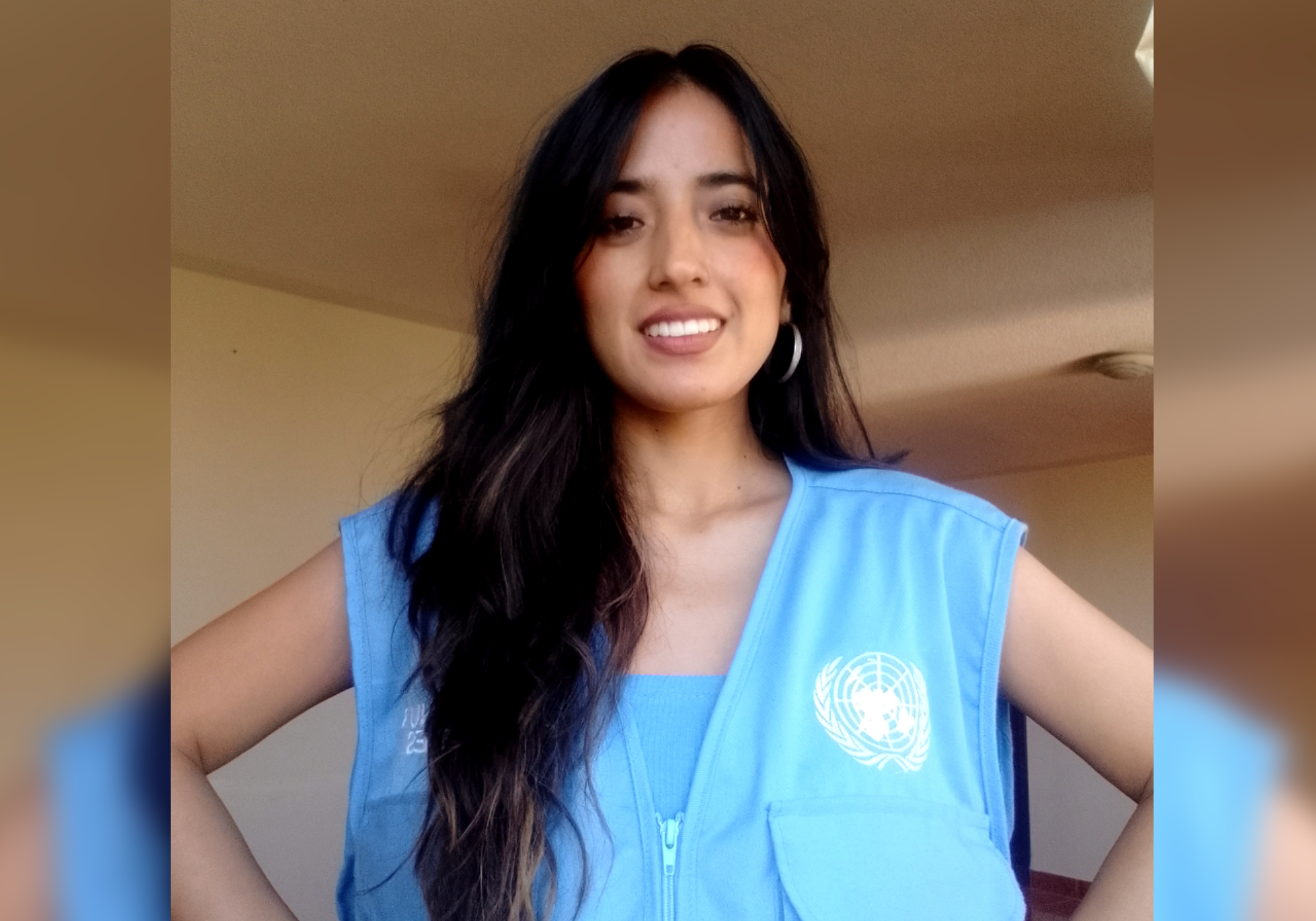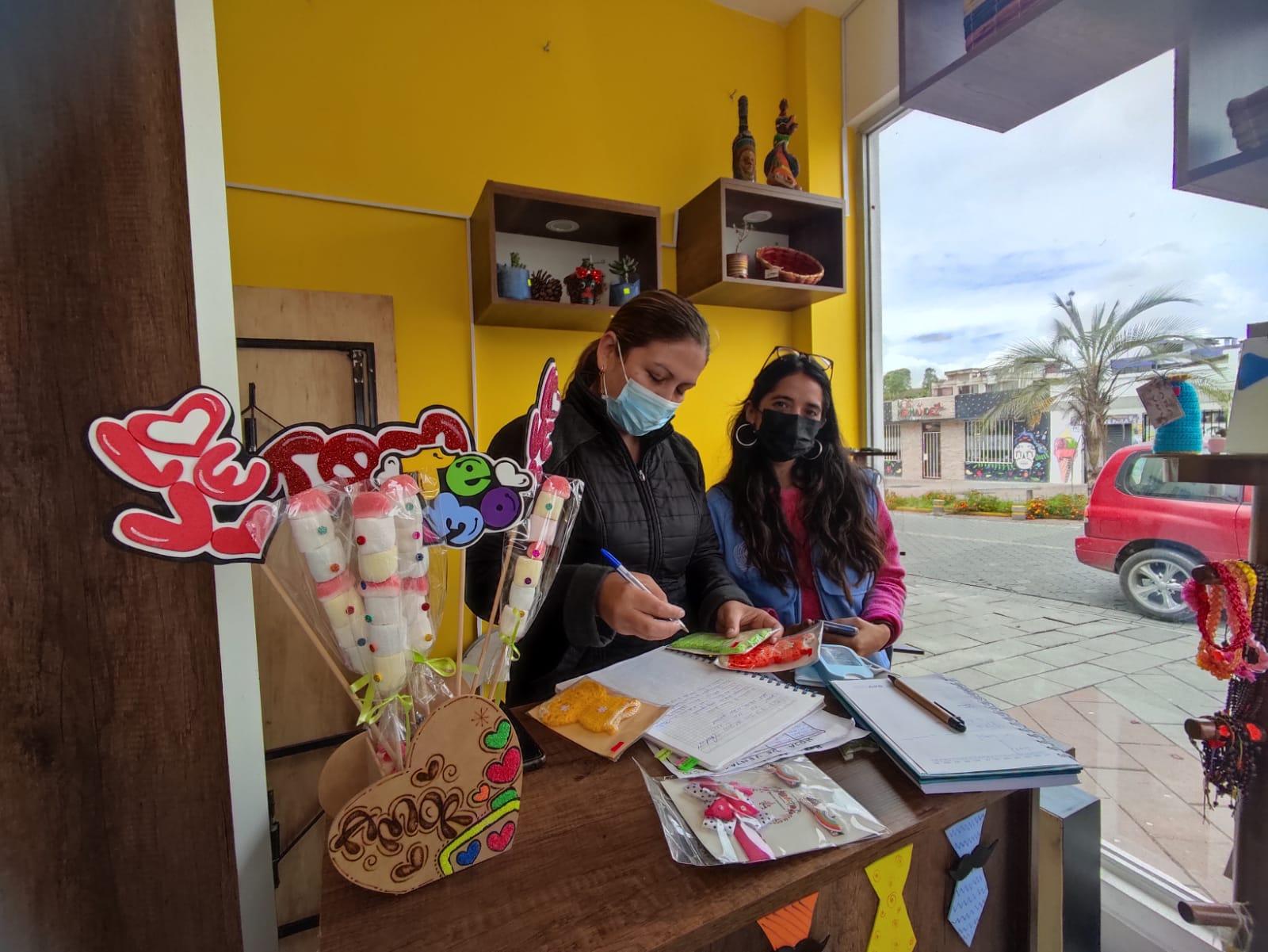In the words of Estefanía Corella: "The Caminando project has made me an ally and defender of the right to universal mobility, which goes hand in hand with the exercise of human rights".
Estefanía Corella is an international lawyer, a specialist in gender justice with experience in legal accompaniment work on issues of violence against women and humanitarian assistance projects in emergency contexts. She is currently part of the Caminando project.
Date:

In the Caminando project I work as a local technical assistant in humanitarian aid in Carchi and Imbabura. In these provinces, we work on the economic empowerment of women in a situation of human mobility. In Ibarra we develop strategies with the private sector and the Descentralized Autonomous Governments (GAD) from the WEPs (Women's Empowerment Principles) approach. In addition, we deploy actions aimed at building non-violent and co-responsible masculinities with men and young people in the host community and in situations of human mobility, as key actors in the eradication and prevention of gender-based violence.
Providing humanitarian assistance to migrants is fundamental. It is a task that involves addressing their immediate needs to guarantee their right to mobility, health, food security and shelter, among others, especially those designed to meet the differentiated needs of women and unaccompanied minors. UN Women is undertaking a strategy of delivering protection kits to be distributed in homes and care centers for women at risk or victims of violence on the northern border to ensure that women's migratory trajectory is dignified and that they can feel safe in the process.

There are different challenges to provide vital assistance to migrants and host communities, due to the volume of population that passes through border crossings daily. Assistance services are scarce and most of the time they are overwhelmed in terms of capacity. For this reason, it is crucial that local articulation is made with each of the actors in the community to ensure that the aid reaches the greatest number of people, reducing the risk of violations of their rights during their migration project.
For me, the greatest satisfaction of being part of Caminando is being part of the humanitarian response strategy with a gender focus in the border towns. It has been a challenge and an enriching learning experience that has allowed me not only to learn first-hand about the valuable contributions that migrants and refugees can make to the societies they reach, but has also given me the opportunity to develop proposals aimed at transforming the material conditions of people in human mobility in their communities, through the social and political advocacy that the project has proposed, participating in the construction of public policies and raising awareness among the institutions responsible for safeguarding the rights of the most vulnerable population.
Caminando has made me an ally and advocate for the right to universal mobility, which goes hand in hand with the exercise of human rights, making my voice heard in spaces where changes can be generated and always convinced that integration and non-exclusion is the path to a peaceful society.
On this day it is important to highlight that the resilience of cross-border communities represents an opportunity to promote peaceful human mobility through the creation of institutional capacity for cross-border dialogue, protective and vigilant communities of human rights, where women, girls and adolescents are the agents of peace building in their communities.